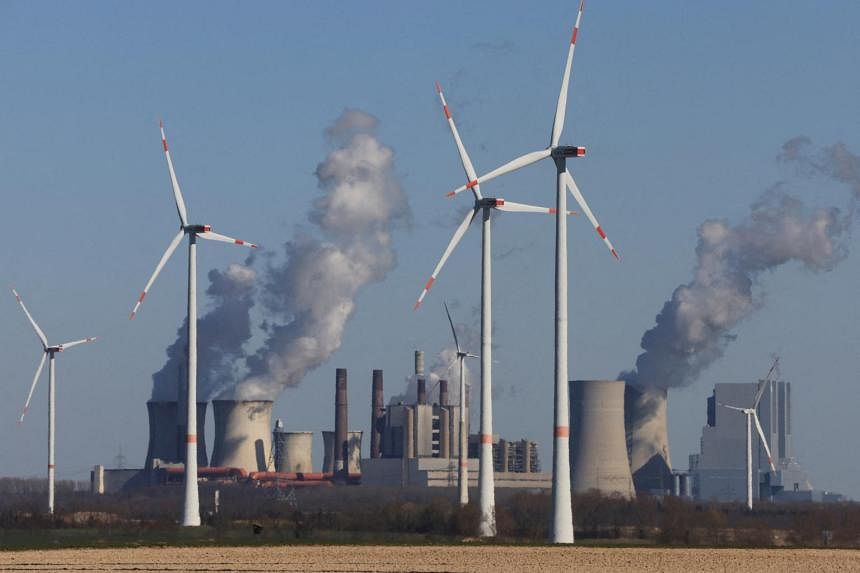SINGAPORE - The global energy crisis is a wake-up call that reliance on fossil fuels is a growing global challenge and this is likely to push the world towards greener and more resilient sources of energy, DBS Bank chief executive Piyush Gupta said on Tuesday.
But over the short term, there is set to be some backsliding as major economies rush to secure coal and gas supplies because of disruptions caused by the war in Ukraine.
Exactly how long this short-term market distortion lasts remains unclear, but Mr Gupta said nations want to boost energy resilience and do not want to be held hostage to a single energy source.
On Tuesday, DBS released its decarbonisation targets in some of the most carbon-intensive sectors it finances, as part of meeting its pledge to be net zero by 2050.
The process of setting the targets took many months and involved discussions with more than 3,000 clients.
"So far, I've been encouraged," he told a media briefing.
"We've reached out to thousands of clients in the past year to have one-on-one conversations to make sure that what we're committing to is not pie in the sky and that people are also aligned to that."
Asked what impact the energy crisis will have on the bank's clients and whether he sees the crisis ultimately speeding up the green transition, he told The Straits Times: "Eventually, yes, I think people are beginning to recognise that the over-reliance on fossil fuels is a challenge. You don't want to be so reliant on a single source.
"So without a doubt, if you ask me over a five- to 10-year time period, I think this (energy crisis) is a great blessing. People will want to reduce the concentration, reduce the volatility of fossil fuels and it'll accelerate the process."
"But in zero to five years from now, you might see some back-stepping," he said, pointing to Germany, Britain and others looking to source more coal and gas to bridge the lost gas supplies from Russia, especially ahead of winter.
China and India are also boosting domestic production of coal to meet energy needs and to reduce costly coal imports.
He also noted the need for nations to boost the resilience of their energy supplies, akin to Singapore successfully bolstering its water supplies.
The rush for fossil fuels has led to widespread fears that global action on climate change is being sidelined, at least for the short term, alarming poorer nations that are highly vulnerable to climate impacts such as flooding, storms and droughts.
This fear has become especially acute after a series of record weather-related disasters this year that scientists say are linked to a warmer atmosphere.
Global banks are under increasing pressure to cut back on fossil fuel lending as the burning of fossil fuels is the single largest source of carbon emissions heating up the planet.
DBS is among a growing number of banks that have halted finance for coal projects and is placing increasingly stringent lending limits on coal companies or firms that derive a sizeable portion of their earnings from coal.
The bank said it has ceased taking on new customers that derive more than 25 per cent of their revenue from thermal coal, and from January 2026, it will stop financing existing customers that derive more than 50 per cent of revenue from thermal coal, except when it is used for their non-thermal coal or renewable energy activities.
A challenge is how to manage general financing to coal companies.
Mr Gupta said it can be hard to track the ultimate use of money when it is given as a general loan.
So for firms with a large portion of coal as part of their business, the bank prefers not to give general finance "because the chances of leakage and slippage are too high".


